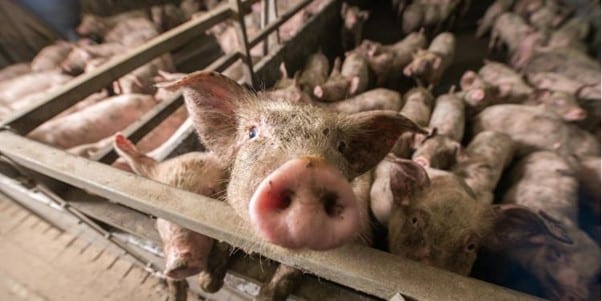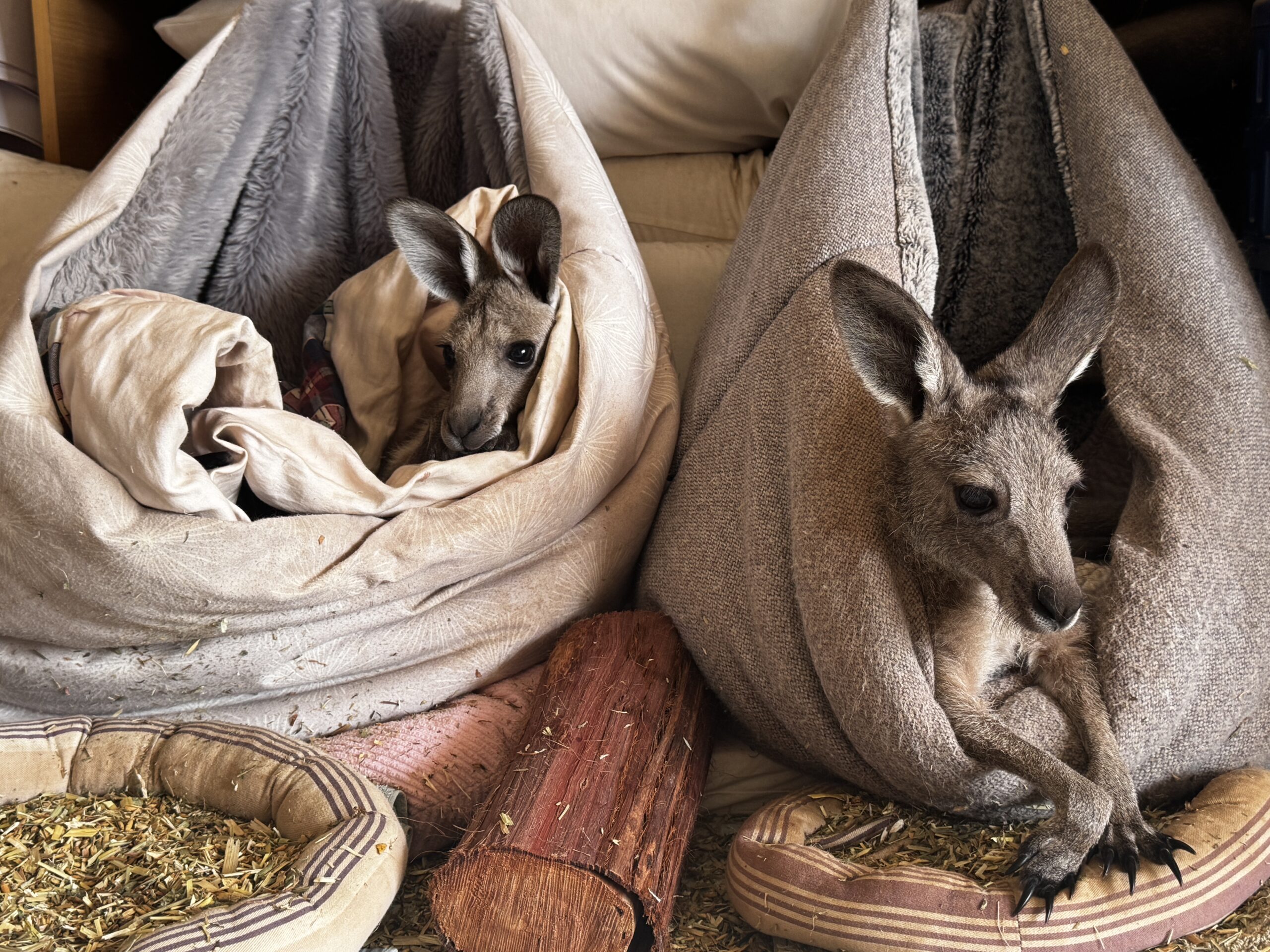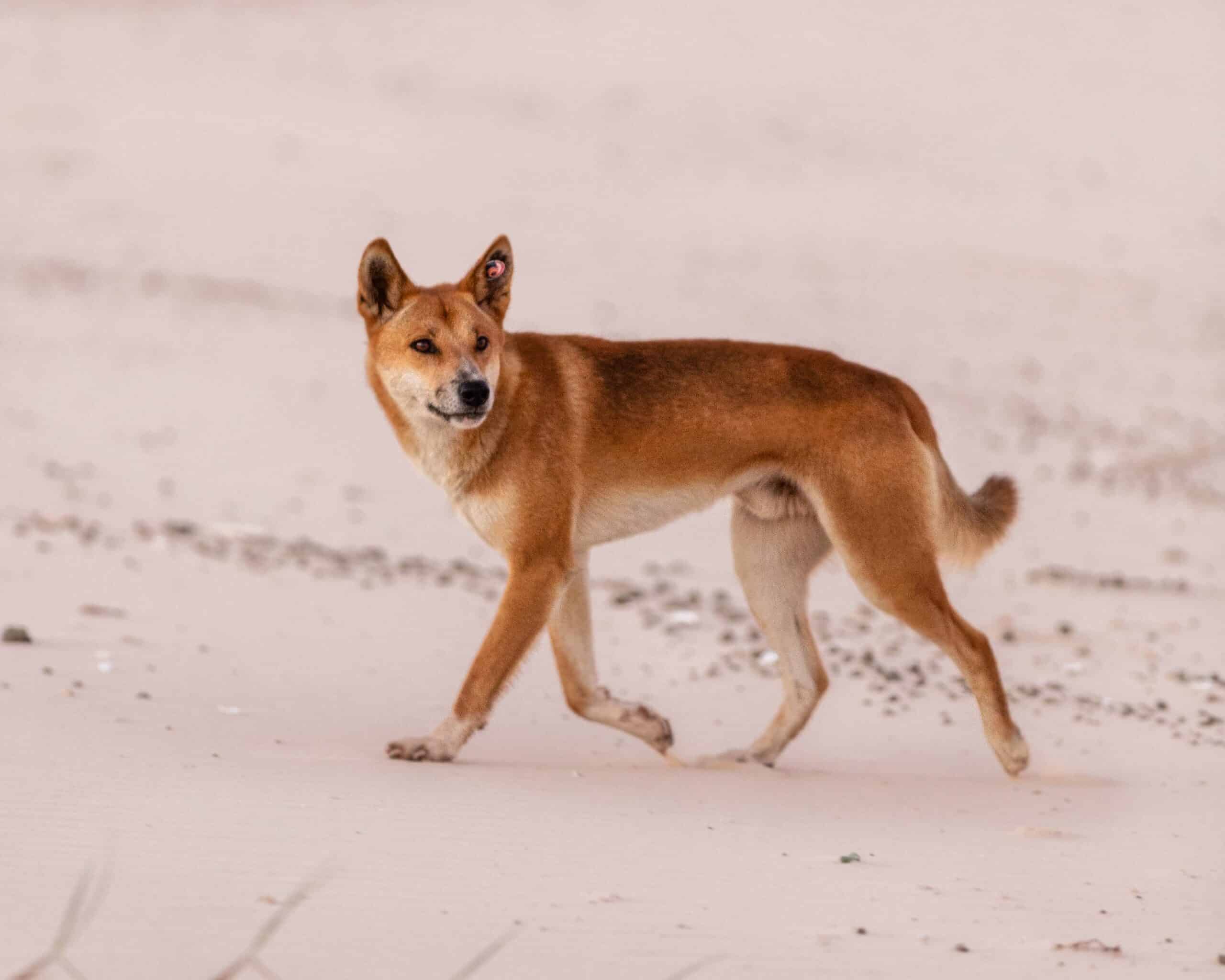When disaster strikes, wildlife rescue is rarely quick or simple. It is a slow, meticulous act of care that often begins with a single phone call from a worried member of the public, or a sighting by a search team moving through burned country. During the ongoing bushfires in Victoria, Humane World for Animals teams have been...
Humane Society International is leading calls to stop ignoring #TheCowInThe Room in the upcoming negotiations at the United Nations Climate Change Conference of the Parties (COP26) in November in Glasgow. If COP26 is serious about meeting the Paris Agreement and keeping to 1.5 degrees to limit the potentially catastrophic impact of global warming, it’s crucial that all leading drivers of climate change are addressed. Yet, until now, one topic has remained the cow in the room: intensive animal agriculture.
Responsible for nearly 60% of greenhouse gas (GHG) emissions from food production, animal agriculture represents 14.5-16.5% of all man-made GHG emissions. This makes farming animals for food the world’s second largest GHG emitter, on par with all forms of transport globally combined. As a leading cause of habitat loss, water pollution, soil degradation and rainforest destruction, it is also driving the biodiversity crisis we face.
The science is clear: shifting to plant-rich diets is one of the most effective climate-mitigation measures and provides multiple benefits for human health and wellbeing, biodiversity and nature recovery, animal welfare, as well as opportunities for sustainable economic growth. In 2021, the UN Environment Programme found that transforming diets to derive more protein from plants and less from animals has the potential to cut annual GHG emissions by up to 20% of current emissions.

Humane Society International (HSI) is campaigning for intensive animal agriculture to feature prominently in strategies to combat climate change and future-proof our food system. Alongside more than 50 global animal protection, environmental and food justice organisations, we have urged COP26 President the Rt. Hon. Alok Sharma MP to publicly recognise the catastrophic climate impact of intensive animal agriculture.
We need to be clear: acknowledging the cow in the room does not imply taking a stand against farmers, it is a call to work with and support them. The farming sector is highly vulnerable to many environmental factors linked to global warming, which are already impacting global food production and security.
We urgently need food and agricultural policies that accelerate and reward a decisive shift away from intensive animal agriculture and towards more diverse and regenerative food production, and that support farmers in a just transition towards a food system that is better for people, animals and the environment.
In Australia the gross value of our agricultural production is forecast to reach a record $73.0 billion in 2021–22. On current trajectories, the value of crop production is forecast to increase by 7% to a record $39.5 billion because of strong price increases for grains, cotton and sugar. The value of livestock production is forecast to increase by 8% to $33.5 billion, driven by higher volumes.
However, diet change to combat climate change is already happening. State of the Industry: Australia’s Plant Based Meat Sector by Food Frontiers with modelling from Deloittes Access Economics found the plant-based protein industry underwent massive growth in Australia in 2020, with a 46% rise in sales as more and more Australians taking a more plant-based approach to their diet. Over FY20, plant-based meat industry’s manufacturing revenue and jobs doubled, as did the number of products on supermarket shelves. With 42 percent of Aussies saying they are eating less meat, or none at all, according to 2019 Colmar Brunton research, Food Frontiers notes the market is ripe to continue its rapid growth.
Celebrities have been getting on board with Moby, Billie Eilish, Joaquin Phoenix, Martin Freeman and Stephen Fry among those joining a letter to the COP 26 President imploring an end to ignoring #TheCowInTheRoom. Around the world, institutions ranging from schools and universities to factories and major foodservice providers are setting goals to reduce their use of animal products. In just the last 18 months HSI has secured new commitments from over 50 institutions around the world to transition animal-based meals to plant-based offerings, impacting millions of meals per year.
In the UK ministers such as Business Secretary Kwasi Kwarteng acknowledge that plant-based dietary shifts made by individuals will help us achieve GHG reduction targets. However, at this critical juncture, country leaders cannot rely on individuals and the corporate sector to make the transition alone. Earlier this year, France announced that its climate and resilience bill will include meat reduction as part of a plan to reach net zero greenhouse gas emissions.
Governments collectively need to leave COP26 prepared to adopt a proactive policy approach that supports and catalyses plant-centric dietary shifts across the whole supply chain, from farmer to consumer. France is one country that has led the way. Our climate and nature crisis, and our collective ambition to build resilient and fair food systems, demands that governments stop ignoring the cow in the room.
Farm Facts:
- According to The Food and Agriculture Organization of the United Nations, animal agriculture is “one of the top two or three most significant contributors to the most serious environmental problems, at every scale from local to global.” (FAO)
- Consuming fewer animal products and eating more plant-based foods, we can help protect the world’s water supply. Producing meat, milk and eggs requires huge amounts of water: growing feed, cleaning housing enclosures, hydrating the animals, disposing their waste or disinfecting slaughtering equipment. Producing 1 kg of chicken requires 4,325 litres of water on average, compared to the 1,644 litres needed to produce 1 kg of cereals. (Hoekstra 2015)
- Eating more plant-based meals will reduce the amount of land used by agriculture. Worldwide, we need more land to raise and feed farm animals than for any other single purpose. More than 97% of soymeal and more than 60% of the barley and corn produced globally are fed to farm animals. (FAO)
- The Intergovernmental Panel on Climate Change (IPPC) report revealed that the climate crisis is poised to get worse if greenhouse gas emissions continue to surge.
- By 2030, the livestock sector is projected to account for almost half of the world’s emissions budget for 1.5C unless things change. (Harwatt 2019)
This blog has been adapted from an opinion piece by HSI UK Executive Director Claire Bass published in the UK in the House Live Serious about combatting climate change? – It’s time to talk about the cow in the room
Subscribe to stay informed with our regular blogs and campaign updates.
Nicola Beynon is Head of Campaigns for the Australian Office of Humane Society International. She has worked in animal protection for over 25 years championing stronger laws and policies for animals in Australia and at international treaties.


